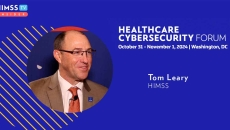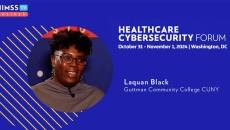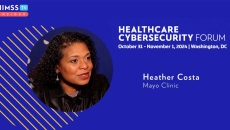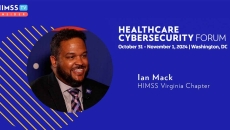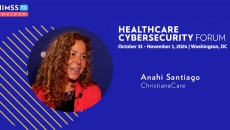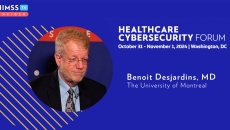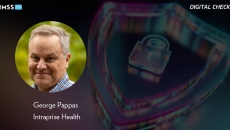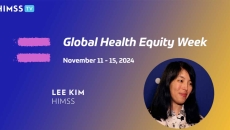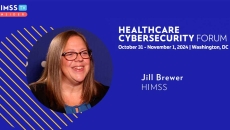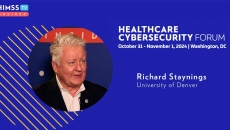Cybersecurity and Privacy
It's important that Congress take action on the telehealth and remote patient monitoring extensions from the pandemic that officially expire on December 31, says Tom Leary, senior vice president and head of government relations at HIMSS.
The demand for jobs in cybersecurity is good. Students need to look at where they want to land and consider some career options, says Laquan Black, assistant professor of Health Information Technology at Guttman Community College CUNY.
Businesses have to be able to recover from that, says Heather Costa, director of technology resilience for the Mayo Clinic, who was formerly known as the director of disaster recovery.
HIMSS Healthcare Cybersecurity Forum reaffirms how cybersecurity can prevent disruption of patient care, says Ian Mack, IT senior security analyst for the University of Virginia and the communications chair for HIMSS Virginia Chapter.
Hiring a third party responsible for dropping a network inside a home that manages the network, devices and security, then leveraging a health systems' clinical expertise to deliver care, works, says Anahi Santiago, CISO at ChristianaCare.
Cybersecurity experts are implementing measures to prevent localized attacks from spreading into hospital networks, where they can affect millions of medical records, says Dr. Benoit Desjardins, professor at the University of Montreal.
A new cybersecurity mandate in New York requires hospitals to implement incident reporting within 72 hours and have a chief information security officer, says George Pappas, healthcare cybersecurity expert and CEO of Intraprise Health.
Cybersecurity is linked to health equity and vice versa, says HIMSS senior principal of cybersecurity and privacy. Cybersecurity must extend beyond the clinical setting as data access to patient information is necessary.
Third-party risk management was the No. 1 weak link reported in organizations' cyberdefense strategies, says Jill Brewer, market insights lead at HIMSS. The No. 1 technology to use is AI-powered threat-detection and analytics.
Richard Staynings, a University of Denver professor, highlights the drawbacks and benefits of AI in patient care and precision medicine, advancing cybersecurity in healthcare, and malicious use of the technology to get past malware defenses.
